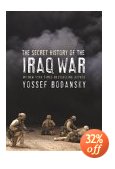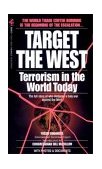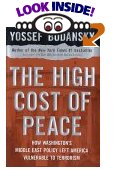|
| Home | About Kashmir Herald | |
Volume 4, No. 4 - October 2004 |
|
|
|
BOOK REVIEW A Review of “A Thousand Petalled Garland and Other poems” By Dr. K. L. Chowdhury Dr. Kundan Lal Chowdhury, the first doctor-poet who chose English as his medium made his debut in Indo-Anglican poetry with his ‘Of Gods, Men and Militants’, a highly acclaimed anthology. Incidentally, he is the second member of the medical profession in Kashmir to enter the field of letters, the first being Dr. Shanker Raina, who made a mark as a short story writer in Kashmiri. While Shanker’s theme remained “the medical stories” throughout, Dr.Chowdhury’s canvas was larger to include a diversity of experience. In fact his first publication, ‘Of Gods, Men and Militants’, is not about his patients, but about the traumatic experience he and his whole community passed through for no reason at all. This and the consequent Diaspora and the agony of exile form only the third section of his second publication, ‘A thousand-Petalled Garland and other poems’. The first thing that hits the eye as you open the book is the dedication. The first section, Adoration, is dedicated to Leela (his wife), the “source and inspiration”. The second section, Testament, the most touching section, is dedicated to those of his closet relatives who were mowed down by the relentless scythe of death, the eternal harvester, while they were under his treatment - father, father-in-law, grandmother, uncle, aunt, cousin and all those others whom cancer devoured. The third section, Exile, is dedicated to victims like him, of a systematized pogrom which, like a whirlwind, flung them out of the lovely valley, their home for ages, to waste away in tents and tenements in alien lands, were the memory of where they belonged was more a state than a solace. These poems, a faithful recording, like a meticulously maintained diary, of what was seen, heard or felt are different from a just superficial enumeration, because the whole ensemble is presented with a poet’s sensitivity and emotional involvement. Talking of the emotional bond, he says: Unlike the
gravitational pull / that dims with distance What makes for a lasting unity is An acceptance- groves, ridges and all- / an adjustment, but
not a compromise, Describing the feeling of emptiness in separation, he says: And it is only a doctor who could describe the agony of a cancer patient thus: With its invisible armoury /it pierces and bores, / crushes
and grinds, And the last twist of the knife: And the pain has the last laugh, / as it itself prove He calls the body the battleground of Kurukshetra. The patient prays for his final deliverance, which eventually comes: The seven chakras froze, / the Kundalini sapped, A patient’s son comes from abroad, not in time to light the pyre but to carry and immerse the ashes, the mortal remains: What a unique reunion this, / we both eagerly looked
forward to, In the first poem of the third section, he talks of the symbolic significance of the bunch of keys, the only belonging he could carry with him: Even after a decade in exile / I hang, from my girdle, this
bunch of keys, He greeted Y2K thus Are there candles in the house /to light up the millennium
night, The valley is not the same after this accursed migration: The call of the muezzin / drowns in the din Some poems in this section (Exile) do not belong to this category, but are remarkable outpourings of a poet’s imagination. They are ‘The Old Man and the Tree’, 'Old Professor Shambhu (a remarkable portrait), 'Creator’ (in which he accuses God for creating the aberration called the human being), ‘Release’, ‘Who is my Enemy?’, ‘Stranger’, ‘Even Shiva had a bath’ and ‘Golden Silence’. This is just an attempt to present Dr. Kundanlal Chowdhury as essentially a poet and not just a narrator or recorder. A unique characteristic of his poetry is a rare combination of emotional involvement and clinical detachment. Though he is professionally extremely busy, the Muse calls on him, whenever he can spare a moment. His life fluctuates between the stethoscope and the computer. I am sure by now another set of his poems would be awaiting publication. Finally, it must be said that the theme of the second and the third section - helplessness while smitten by an inexorable foe, death or savage barbarism - has been handled with remarkable artistic restraint, which prevents the poignant portrait of intense agony from being buried in the raucous noise of brow beating and lamentation. (The author of this review is a former professor of English, National Defense Academy Kharakvasla, Pune. He is author, translator, critic and reviewer and lives in Pune, India.) |
 |
 |
 |
|
|
Archives
| Privacy Policy |
Copyrights
|
Contact
Us | |
||